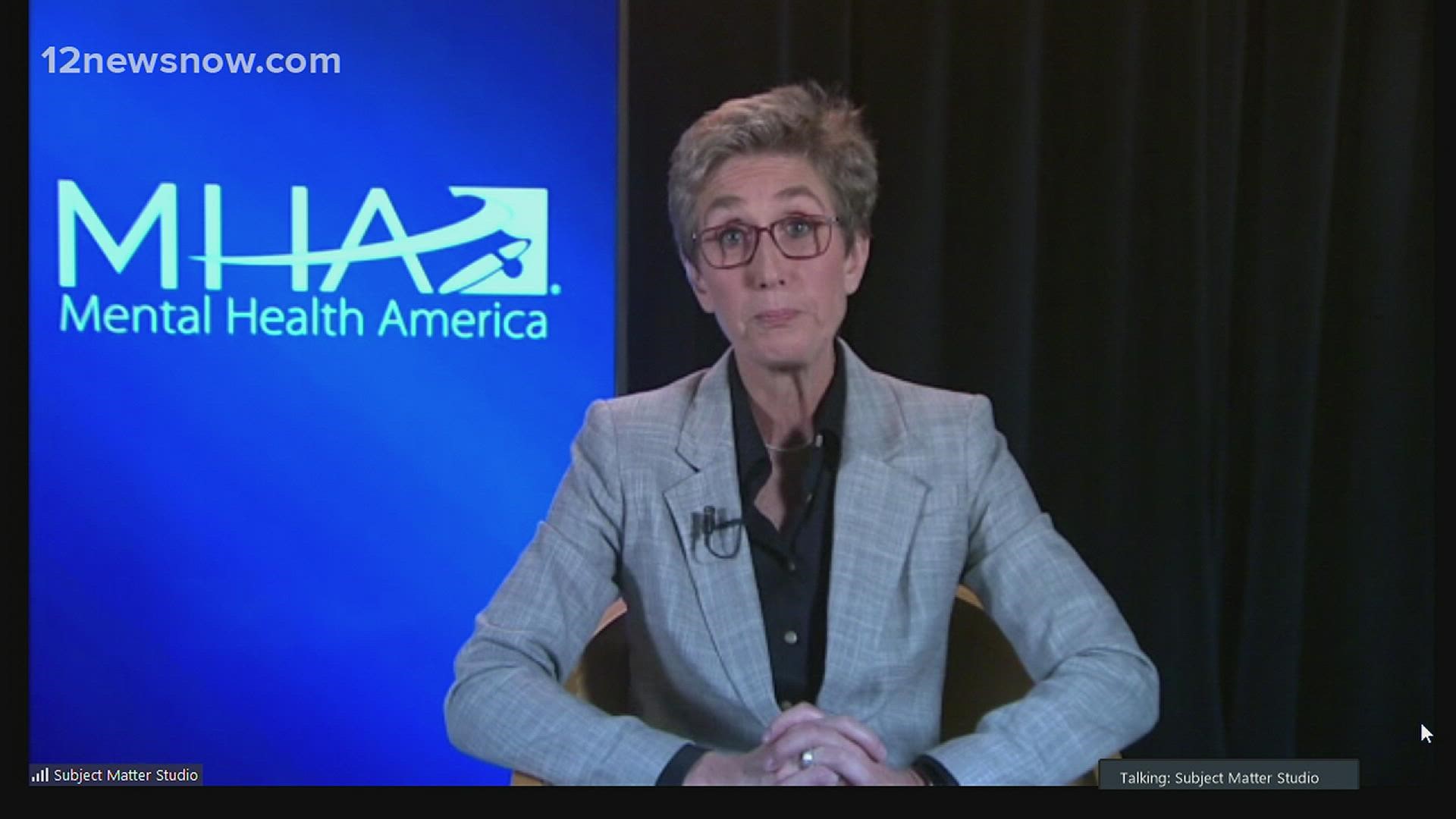BEAUMONT, Texas — As COVID-19 spread throughout the United States, it not only resulted in greater morbidity and mortality, but also had disastrous effects on the mental health of the nation.
As this year comes to a close, the nation's leading community-based nonprofit dedicated to helping people live mentally healthier lives, Mental Health America, released their annual report, "The State of Mental Health in America" for 2022.
The report examines national survey data that allows researchers to measure a community’s mental health needs, access to care and outcomes regardless of the differences between the states and their varied mental health policies.
MORE | Mental Health America
Mental Health America president and CEO Schroeder Stribling is a lifelong social justice advocate with over 20 years of experience managing organizations focused on mental health, homelessness, poverty and racial justice. She spoke exclusively with 12News about the findings from the report and how the COVID-19 pandemic had a huge impact.
"It's the social isolation we experienced, it's the disruption of children in their developmental stages and in their ordinary routines and schedules, it's the changes for all of us managing fear and for many people, it's managing grief,” she said.
The number of people with moderate-to-severe symptoms of depression and anxiety steadily increased and people are still struggling with loneliness and isolation as the pandemic continues.
The annual report, put out each year since 2015, can be used to implement future change by helping policymakers pinpoint key areas in each state where there is the greatest unmet need. It tracks federal and state policy initiatives aimed at affecting mental health outcomes over time and provides a roadmap for leaders at all levels of government to understand where more resources are needed.
Texas ranks 44th out of the states, meaning it has a high prevalence of mental illness amongst the population, but lacks heavily in access to care and resources. Nearly three-quarters of Texas youth with major depression did not receive mental health treatment.
"One thing we do note is that states where they have expanded Medicaid, that's one way to quickly expand access to people experiencing mental health conditions, that's one thing that Texas might want to focus on," Stribling said.
2022 key findings:
- In 2019, just prior to the COVID-19 pandemic, 19.86% of adults experienced a mental illness.
- Suicidal ideation continues to increase among adults in the U.S.
- A growing percentage of youth in the U.S. live with major depression.
- Over 2.5 million youth in the U.S. have severe depression, and multiracial youth are at greatest risk.
- Over half of adults with a mental illness do not receive treatment, totaling over 27 million adults in the U.S. who are going untreated.
- The percentage of adults with a mental illness who report unmet need for treatment has increased every year since 2011.
- Over 60% of youth with major depression do not receive any mental health treatment.
- Nationally, fewer than 1 in 3 youth with severe depression receive consistent mental health care.
- Both adults and youth in the U.S. continue to lack adequate insurance coverage.
- Rates of substance use are increasing for youth and adults, even prior to the COVID-19 pandemic.

